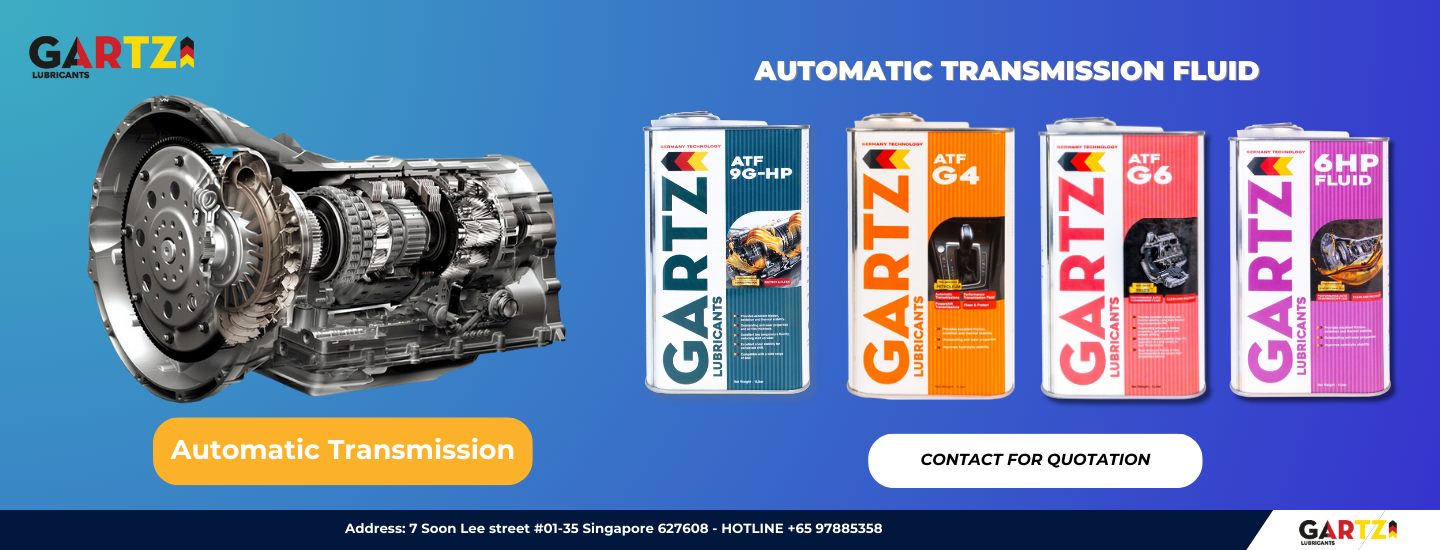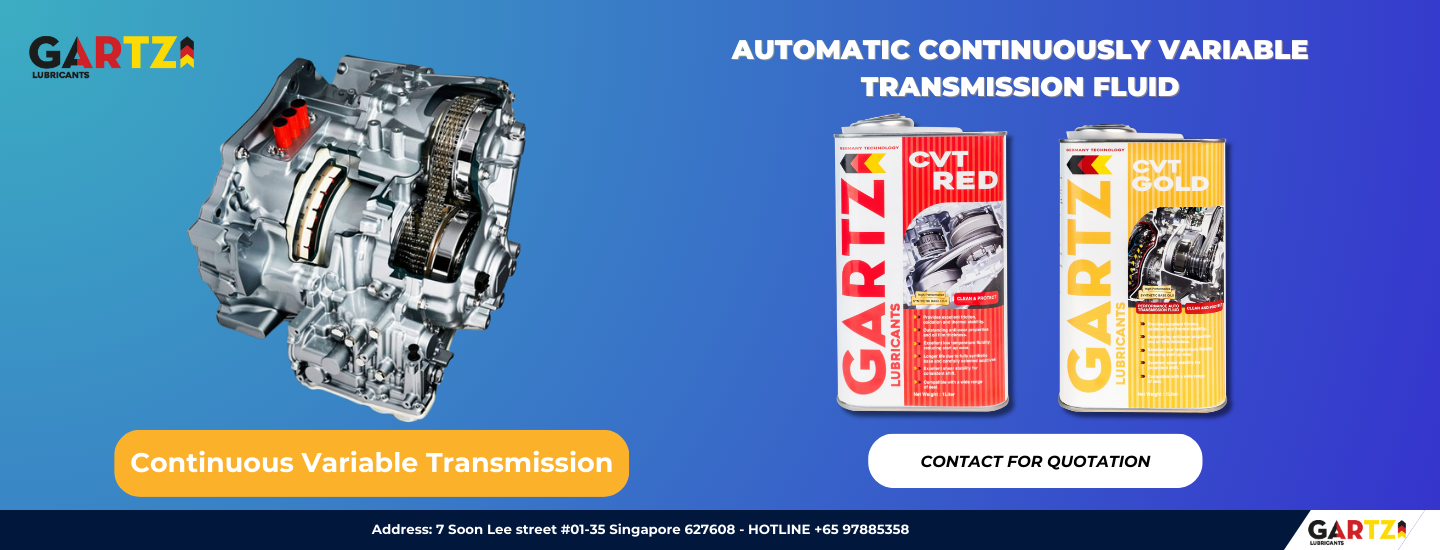Thứ 6, 24/05/2024
Administrator
1074
Thứ 6, 24/05/2024
Administrator
1074
AVOID THESE DRIVING HABITS THAT DAMAGE YOUR TRANSMISSION
The transmission is an essential component of a car, responsible for transferring power from the engine to the wheels. However, during use, the transmission can encounter problems due to driving habits that harm the transmission and do not meet the vehicle's performance requirements. So how do these habits affect the transmission? Let's find out together with Gartz!

1. Harmful habits for your car's transmission
Starting the car and immediately shifting gears
Many people, due to either haste or habit, often get into their cars, start the engine, and shift gears right away. However, this is a very bad habit that can damage the engine.
Automotive engineers explain that after a period of "rest," the oil in the engine settles to the bottom. If you start the car and shift gears immediately, this oil has not yet reached all the components, while the engine is already running at high RPMs, which can lead to overheating and wear and tear on internal components.
It is recommended to start the car and let it run for about 30 seconds to 1 minute to allow the oil to circulate to all areas before shifting gears and driving.
Resting Your Hand on the Gear Shifter
While some drivers may place their hand on the gear shifter as a habit to shift gears faster, this seemingly harmless action can actually cause damage to various components within the transmission.
According to automotive engineers, the weight that the driver's hand puts on the gear lever will be transmitted to the gears inside the transmission, causing them to wear out and deteriorate quickly.
Drivers can break this bad habit by regularly keeping both hands on the steering wheel. This not only reduces damage to the transmission but also allows the driver to handle situations more safely.

Using coolant instead of water
Coolant is a specialized fluid consisting mainly of distilled water combined with cooling additives that help dissipate heat quickly while preventing evaporation, preventing the formation of deposits, and protecting against corrosion of components.
By using coolant instead of water, you can ensure proper cooling and prevent potential damage to the engine's cooling system. Coolant is specifically designed to withstand extreme temperatures and provide better overall protection for the engine.
Many people, for convenience or cost-saving reasons, use tap water (filtered water) to fill the coolant reservoir. In the long run, this can cause the engine and car components to overheat, potentially leading to blown head gaskets and incurring high repair costs.
Unexpectedly shifting into drive while the car is in reverse
Many drivers, in an attempt to save time when reversing and changing direction, often switch directly to drive (gear 1 for manual transmission and D for automatic transmission) even when the car is still in motion. Sudden gear shifting like this is one of the major factors that can damage the car.
According to automotive engineers, when the transmission is still in the process of reversing and is suddenly forced to change direction, it puts significant strain on the gearbox and the vehicle's drivetrain, potentially leading to rapid wear and transmission failure. Therefore, it's important to only shift from reverse to drive and vice versa when the car is completely stopped.
Dead steering
Dead steering, which refers to turning the steering wheel when the car is stationary, is one of the reasons why the car's transmission can quickly deteriorate. This situation often occurs when driving in tight spaces, constantly maneuvering forward and backward. It is also a damaging mistake for the car's transmission. When dead steering occurs, the power steering pump, steering rack, tie rods, etc., have to operate at high levels due to increased friction. Moreover, dead steering can cause accelerated tire wear because the wheels experience sliding friction with the road surface rather than rolling friction.

2. Signs of a car's transmission experiencing issues
Check Engine Light
The check engine light illuminates when there is any damage related to the engine and drivetrain of the car. However, it can also be a warning sign that the transmission is experiencing problems.
Drivers should not overlook this warning before identifying the cause. They should check the coolant and transmission fluid levels or take the vehicle for maintenance to address the issue promptly.
Vibration or Whining Noise
The transmission of a car consists of hundreds of moving parts. Therefore, even a faulty bearing can cause vibrations or unusual noises during operation. Depending on whether it is a manual or automatic transmission, there may be different indications of damage.
In a manual transmission, there may be a grinding or whining noise when shifting gears, even with the clutch fully engaged. This can be due to a worn-out clutch or damaged gears within the transmission. In an automatic transmission, if the car has difficulty engaging gears or experiences heavy shaking, it may indicate a problem.
Transmission Fluid Leak
Transmission fluid leakage is a reliable indicator that the transmission is experiencing issues. In an automatic transmission, the transmission fluid plays a crucial role in reducing friction during vehicle operation. Therefore, when a bright red fluid is observed leaking from under the vehicle, it is important to have the car inspected immediately. Allowing the fluid to continue leaking can lead to significant damage to the transmission.

Burning or Pungent Odor
A burning odor, similar to the smell of burnt rubber, indicates that the transmission is overheating, causing the transmission fluid to burn and operate inefficiently. The transmission fluid not only lubricates the gears but also helps in cooling by constantly circulating and dissipating heat generated during gear shifting.
If the transmission fluid is burnt, the transmission will not receive the necessary lubrication, and friction will generate heat in the transmission gears.
Slipping or Skipping Gears
In normal operation, the transmission will stay in a particular gear until the driver changes it (in the case of a manual transmission) or the computer system performs the shift (in the case of an automatic transmission). However, if the transmission slips, it can spontaneously shift into different gears or jump out of gear (in the case of a manual transmission).
This is a potentially dangerous sign. The vehicle may lose control while driving, or the driver may not be able to respond quickly in emergency situations. Therefore, it is important to take the vehicle to a repair shop to promptly address the transmission issue.

When these abnormalities are noticed in a vehicle, it is necessary to have the vehicle inspected and serviced as soon as possible to avoid potential major damages. Additionally, to prevent abnormal conditions in the transmission, it is recommended to regularly change the transmission fluid after every 40,000 km to 60,000 km of usage.
In the current market, there are various types of transmissions available, so choosing the appropriate transmission fluid is also crucial. Gartz automatic transmission fluid is specifically formulated to meet the technical requirements of different types of automatic transmissions, including AT (automatic transmission), CVT (continuously variable transmission), and DCT (dual-clutch transmission). Gartz offers a diverse range of products to ensure that their fluids are compatible with your vehicle's automatic transmission.
For vehicles with automatic transmissions (AT), Gartz provides options such as G4, G6, 9GHP, and 6HP transmission fluids.

For vehicles equipped with a continuously variable transmission (CVT), Gartz offers CVT Red and CVT Gold transmission fluids.

For vehicles equipped with a dual-clutch transmission (DCT), Gartz offers DCTF (Dual-Clutch Transmission Fluid).

.png)
-----------------------------------------------------------
Address: 7 Soon Lee street #01-35 Singapore 627608
Hotline: +65 97885358
Working hours: 9:00 AM - 17:00 PM (Mon-Sat)
Website: http://gartz.com/
Share:
-
 How Important is Coolant to Your Car? Why Can't You Ignore It?10/02/2026
How Important is Coolant to Your Car? Why Can't You Ignore It?10/02/2026 -
 How to Choose the Right Oil Grade for Your Vehicle? 5W30, 10W40, or…?05/02/2026
How to Choose the Right Oil Grade for Your Vehicle? 5W30, 10W40, or…?05/02/2026 -
 Gartz Participates in the Saigon Auto Parts Club's Year-End Party – A Night of Connection and Spreading Values02/02/2026
Gartz Participates in the Saigon Auto Parts Club's Year-End Party – A Night of Connection and Spreading Values02/02/2026 -
 5 Common Mistakes Learners Make29/01/2026
5 Common Mistakes Learners Make29/01/2026 -
 3 Little-Known Facts About Automotive Engine Oil – Understanding Them Correctly to Protect Your Engine & Transmission26/01/2026
3 Little-Known Facts About Automotive Engine Oil – Understanding Them Correctly to Protect Your Engine & Transmission26/01/2026 -
 3 Golden Times for Changing Transmission Fluid – Don't Wait Until Your Car Breaks Down Before You Remember to Change It22/01/2026
3 Golden Times for Changing Transmission Fluid – Don't Wait Until Your Car Breaks Down Before You Remember to Change It22/01/2026 -
 Top 3 Facts About Automotive Coolant20/01/2026
Top 3 Facts About Automotive Coolant20/01/2026 -
 Automatic transmission fluid: Its role, when to change it, and important considerations when using it.15/01/2026
Automatic transmission fluid: Its role, when to change it, and important considerations when using it.15/01/2026 -
 What's the Best Transmission Fluid? How to Choose High-Quality Transmission Fluid for Your Car12/01/2026
What's the Best Transmission Fluid? How to Choose High-Quality Transmission Fluid for Your Car12/01/2026 -
 Gartz Launches New 4L Coolant: Upgraded Packaging, Great Price, Available in Various Standards G11 – G12+ – G13 – G13+07/01/2026
Gartz Launches New 4L Coolant: Upgraded Packaging, Great Price, Available in Various Standards G11 – G12+ – G13 – G13+07/01/2026
